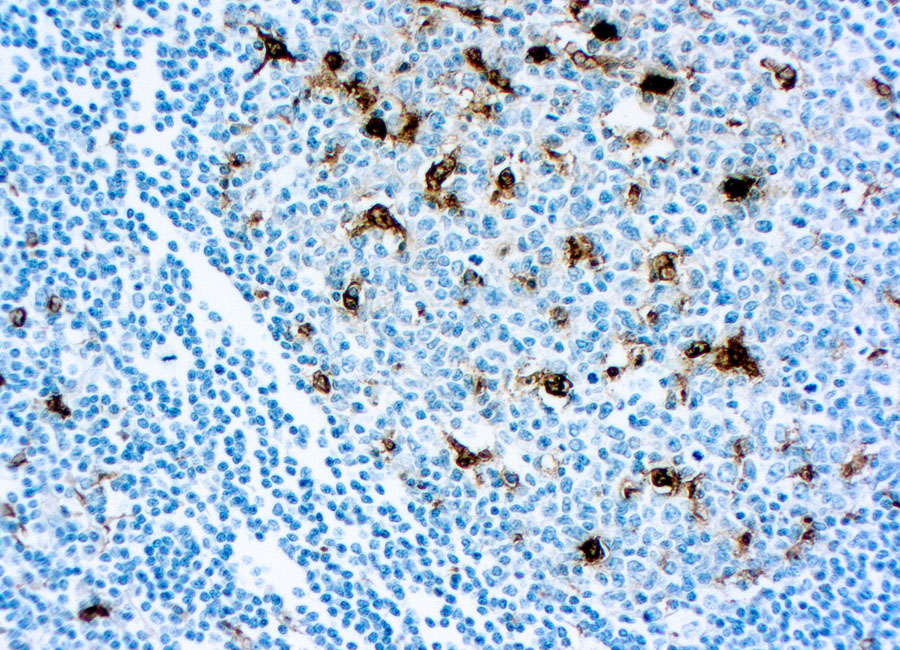Antibody (Suitable for clinical applications)
| Specification | Recommendation |
|---|---|
| Recommended Dilution (Conc) | 1:50-1:100 |
| Pretreatment | HistoZyme |
| Incubation Parameters | 30 min at Room Temperature |
Prior to use, inspect vial for the presence of any precipitate or other unusual physical properties. These can indicate that the antibody has degraded and is no longer suitable for patient samples. Please run positive and negative controls simultaneously with all patient samples to account and control for errors in laboratory procedure. Use of methods or materials not recommended by enQuire Bio including change to dilution range and detection system should be routinely validated by the user.
Lysozyme/Muramidase Information for Pathologists
Summary:
Also called muramidase. Histiocytic enzyme that cuts muramic acid linkages in walls of bacterial cells (Wikipedia: Lysozyme [Accessed 3 August 2018]). Microscopic (histologic) images Images hosted on PathOut server:.
| Lysozyme/Muramidase General Information | |
|---|---|
| Alternate Names | |
| Molecular Weight | |
| 16.5 kDa | |
| Chromosomal Location | |
| q15 [chr: 12] [chr_start: 69348341] [chr_end: 69354234] [strand: 1] | |
| Curated Database and Bioinformatic Data | |
| Gene Symbol | LYZ |
| Entrez Gene ID | 4069 |
| RefSeq Protein Accession(s) | NP_000230 |
| RefSeq mRNA Accession(s) | NM_000239; |
| RefSeq Genomic Accession(s) | NG_008195; NC_000012 |
| UniProt ID(s) | P61626 |
| PharmGKB ID(s) | PA30503 |
| KEGG Gene ID(s) | hsa:4069 |
| Associated Diseases (KEGG IDs) | Amyloidosis 8 (AMYL8) [MIM:105200]: A form of hereditary generalized amyloidosis. Clinical features include extensive visceral amyloid deposits, renal amyloidosis resulting in nephrotic syndrome, arterial hypertension, hepatosplenomegaly, cholestasis, petechial skin rash. There is no involvement of the nervous system. {ECO:0000269|PubMed:8464497}. The disease is caused by mutations affecting the gene represented in this entry. |
| General Description of Lysozyme/Muramidase . | |
| This antibody reacts with lysozyme. It stains granulocytes, monocytes and macrophages in human tonsil, skin and colon. This antibody does not cross-react with any other cell types. | |




There are no reviews yet.